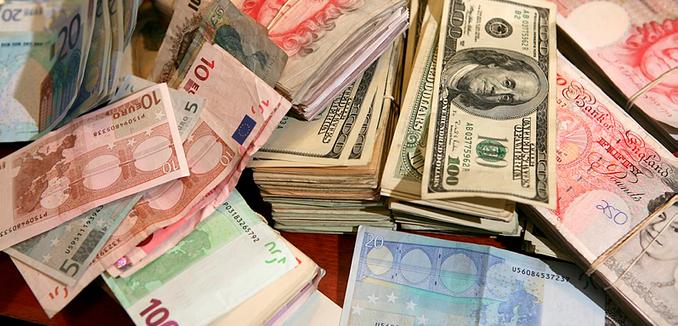Foreign investments in Israel have nearly tripled since the Jewish state was first targeted for boycott by a coalition of Palestinian groups, indicating that efforts to isolate it are failing.
Foreign capital flow to Israeli assets hit a record high of $285.12 billion last year, nearly triple of what this figure was in 2005, Bloomberg News reported last week. And while the Israeli economy has been slowing as of late, it is still performing better than that of the United States and other Western nations. Israeli companies, especially high-tech startups, have also become very attractive targets for foreign investors.
Israel’s economy is expected to grow 2.8 percent this year compared with 1.8 percent for the U.S. and the European Union. In 2015 its industrial high-tech exports rose 13 percent from a year earlier to $23.7 billion, according to the Israeli Export and International Cooperation Institute. The BlueStar Israel Global Index, a gauge of globally-listed Israeli companies, has doubled over the past decade, outperforming the 21 percent gain in the benchmark MSCI ACWI Index of emerging and developed world markets.
Despite the appreciating shekel — a sign of foreign investor confidence — Israeli startups raised $3.76 billion last year from non-Israeli investors, the highest annual amount in a decade, according to data collected by IVC Research Center. Foreigners, who are responsible for at least 50 percent of total yearly investment in Israeli startups, spent an additional $5.89 billion acquiring them.
“We don’t have a problem with foreign investment in Israel — on the contrary,” Yoel Naveh, chief economist at Israel’s finance ministry, told Bloomberg. While Naveh acknowledged that “some institutional investors that said they are pulling their investments,” he qualified the observation by adding, “We don’t need it.”
The Bloomberg report is consistent with an analysis written for The Wall Street Journal two years ago by David Rosenberg, economic editor of the Israeli daily Haaretz:
The true story is that after nearly 10 years of campaigning, the global BDS (boycott, divestment and sanctions) movement has not had the slightest economic impact. Its victories have consisted of coaxing a handful of pop stars and academics to cancel appearances in Israel, and winning empty, sanctimonious declarations of support from the likes of student governments, cooperative grocery stories and leftish church groups.
Far from being isolated, Israel’s exports are reaching record highs and it attracts billions of dollars in foreign investment. In the weeks that Israel was supposedly under a boycott siege, Japan’s Rakuten agreed to buy the start-up Viber for $900 million and Ireland’s Covidien sealed a deal to buy Given Imaging for $860 million. China’s Bright Food was in talks to buy control of Israel’s biggest food maker Tnuva, and IBM, Lockheed-Martin and ERM all announced plans to open research and development centers in Israel. The Jewish state became the first non-European member of the nuclear research consortium CERN and was admitted as an observer to the Pacific Alliance, a free-trade bloc of five Latin American countries.
A group of multinational firms including Ford, IBM, GE, Tyco, GM, Singtel, PayPal, Yahoo, ProSieben, and Kimberly-Clark came to Tel Aviv at the end of 2015 to find suitable startups to invest in. That year, Israeli startups netted nearly $5 billion in Venture Capital-backed exit deals, a ten-year record.
Jonathan Schanzer, vice president for research at the Foundation for Defense of Democracies, outlined at a congressional hearing in April how members of a network that used to fund Hamas have become the driving force behind the BDS campaign in the United States through the group American Muslims for Palestine.
The BDS campaign attempts to delegitimize and isolate Israel in an effort to advance Palestinian interests, and many of its leaders have publicly affirmed that they seek Israel’s destruction. BDS co-founder Omar Barghouti, an opponent of the two-state solution, said in 2014 that Palestinians have a right to “resistance by any means, including armed resistance,” while leading activist As’ad Abu Khalil acknowledged in 2012 that “the real aim of BDS is to bring down the state of Israel.”
[Photo: Yossi Zamir / Flash90 ]




